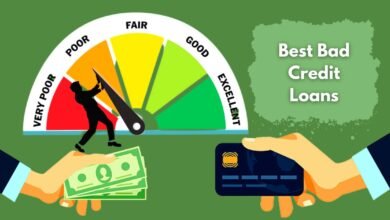Maximizing Sales Efficiency: Strategies for Effective Home Sales Training

Table of Contents:
- Key Takeaways
- Understanding the Importance of Home Sales Training
- Evaluating Sales Training Programs
- Technological Tools in Sales Training
- The Psychological Aspect of Sales
- Incorporating Soft Skills into Sales Training
- Data-Driven Sales Strategies
- Cultivating a Learning Culture in Sales Teams
Understanding the Importance of Home Sales Training
Steering through the dynamic and often unpredictable real estate landscape necessitates a robust foundation in home sales training. The caliber of training imparted to sales professionals is directly proportional to their efficacy in the field. Programs like those offered by this website https://www.newhomestar.com/services/sales-training are designed to instill sales agents with the competencies needed to thrive in today’s competitive market. With the proper training, real estate professionals can meet and exceed the expectations of savvy homebuyers who demand expert guidance and service.
Professional development in home sales is about more than just understanding market trends; it’s about mastering the complex interplay of negotiation, persuasion, and client relationship management. Identifying core competencies such as emotional intelligence, product knowledge, and strategic planning is crucial for those looking to excel. Studies have repeatedly shown that well-trained sales forces are more productive, citing increased sales volume and improved customer loyalty as critical benefits. Businesses that understand the value of thorough and continual training programs can gain a vital edge, wrapping expertise and authenticity into a compelling sales package.
Key Takeaways
- A well-executed sales training program is indispensable for achieving high performance in the real estate industry.
- Both technical and soft skills are crucial in crafting an effective sales strategy and delivering an excellent customer experience.
- Technological adaptation and a continuous learning mindset are the cornerstones of modern sales success.
Evaluating Sales Training Programs
The most impactful sales training programs are multifaceted, incorporating immersive learning experiences, ongoing mentorship, and constructive feedback mechanisms. It is essential for an organization to critically assess the structure and content of potential training programs, seeking out those that promote practical applications over merely theoretical instruction. The programs should align with the company’s values, goals, and sales approaches to ensure relevance and immediate applicability.
Technological Tools in Sales Training
The advent of technology has profoundly transformed the landscape of home sales training. From e-learning modules and online simulations to Customer Relationship Management (CRM) software that tracks client interactions, tech tools have become integral to modern training programs. Virtual reality simulations, for instance, create immersive scenarios for sales professionals to practice their pitch, manage objections, and refine their sales techniques in a risk-free environment.
Understanding the balance between the convenience of technology and the necessity for human touch in sales is essential. While technology can broaden the scope of training and provide invaluable data analytics, it should complement rather than replace the traditional sales virtues of personal connection and trust-building. Ultimately, the goal is to leverage technological advancements to enhance these interpersonal elements and equip sales professionals with diverse skills to meet the demands of today’s market.
The Psychological Aspect of Sales
Delving into the psychological prowess underpinning successful sales can largely benefit the training process. Understanding psychological triggers and consumer behavior can give sales representatives a strategic advantage. A salesperson can more effectively guide potential buyers through the decision-making process by tapping into psychological principles such as the tendency towards reciprocity or the influence of social proof.
The assimilation of these concepts within sales training often leads to more intentional and nuanced sales techniques. By embracing the human elements of empathy and connection, sales training can empower professionals to engage with prospects on a deeper level, ultimately fostering trust and credibility – the cornerstones of lasting business relationships.
Incorporating Soft Skills into Sales Training
Beyond the technical knowledge of home features and financing options, the successful salesperson must be adept at interpersonal relationships. Sales training emphasizing soft skills such as empathy, active listening, and conflict resolution can significantly enhance a sales team’s ability to connect with a diverse clientele. Given that each client’s journey to homeownership is personal and emotionally charged, the ability to navigate these conversations with tact and sensitivity cannot be underestimated.
Through role-playing exercises and interactive workshops, sales professionals can practice and refine these skills, making them more agile in real-world interactions. Moreover, the infusion of these soft skills into daily practice improves customer interactions and contributes to a more harmonious working environment among colleagues.
Data-Driven Sales Strategies
As the home buying process becomes increasingly data-intensive, so does the sales training approach. Integrating market analytics and consumer data into training programs enables sales professionals to take a more strategic and informed stance when engaging with clients. Insights from housing market trends to client purchasing patterns offer invaluable guidance that can shape sales pitches and negotiations.
When solid data underpin sales strategies, sales teams can more effectively identify opportunities, tailor their outreach, and anticipate challenges. This data-driven approach enhances efficiency and shows clients professionalism and market savvy, which can significantly influence their confidence in their realtor’s capabilities.
Cultivating a Learning Culture in Sales Teams
Growth-oriented organizations recognize the importance of nurturing a culture that celebrates lifelong learning. Establishing this mindset within sales teams fosters personal and professional development and equips them to navigate an ever-changing marketplace with agility. The commitment to continuous improvement is often reflected in a sales team’s resilience and readiness to innovate as they encounter new market conditions and client needs.



